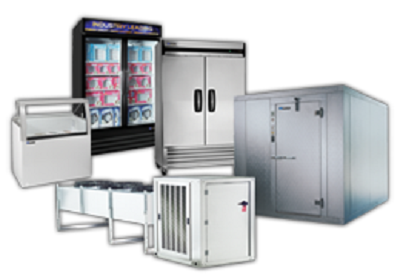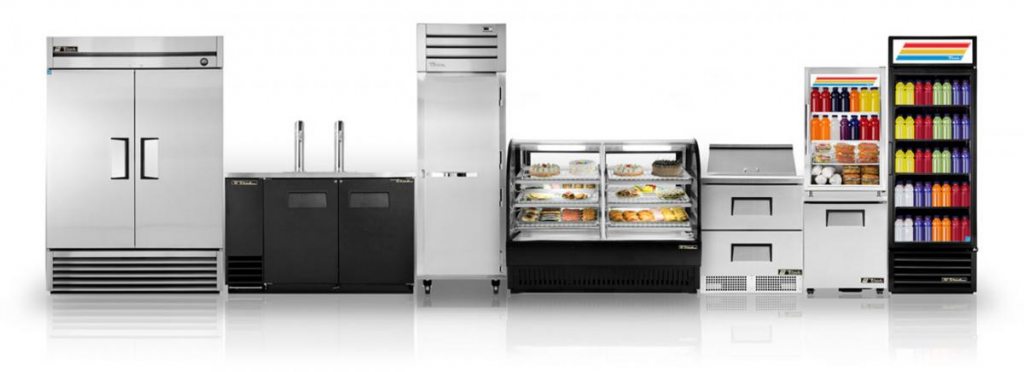Appliance Warm Inside? Refrigerator repair experts Dependable Refrigeration & Appliance Repair Offer Quick Troubleshooting Tips
Appliance Warm Inside? Refrigerator repair experts Dependable Refrigeration & Appliance Repair Offer Quick Troubleshooting Tips
Blog Article
Important Tips for Effective Ref Fixing to Extend Home Appliance Lifespan
When it comes to your refrigerator, appropriate repair service and upkeep are vital for longevity. Recognizing usual troubles and recognizing when to act can make all the difference.
Understanding Common Refrigerator Problems
Fridges are necessary in keeping your food fresh, yet they can come across an array of typical issues that interrupt their performance. If you see food ruining quicker than common, examine the thermostat setups or consider if the door seals are harmed. Acknowledging these problems early can save you time and cash in repair services, ensuring your refrigerator runs efficiently and efficiently.
Normal Maintenance Practices
To maintain your appliances running efficiently, you require to stay on top of regular upkeep techniques. Clean the condenser coils, examine the door seals, and keep an eye on the temperature settings to guarantee peak efficiency. These easy tasks can save you time and cash on repair work down the line.
Tidy Condenser Coils Frequently
Cleaning your condenser coils frequently can considerably enhance your device's efficiency. Dirt and dirt build up on these coils over time, causing your device to function more challenging and take in more power. To keep them clean, disconnect your home appliance and thoroughly remove any type of protective covers.
Check Door Seals
Three easy actions can assist you ensure your appliance's door seals are in good condition. Second, clean the seals utilizing warm, soapy water to get rid of any particles or gunk. By adhering to these steps, you'll preserve your home appliance's effectiveness and long life, saving you cash on energy costs and repair services in the long run.
Monitor Temperature Settings
Frequently monitoring your home appliance's temperature setups is crucial for ideal performance and efficiency. Whether you're handling a refrigerator, fridge freezer, or oven, keeping an eye on these setups can protect against several problems. For fridges, go for temperatures in between 35 ° F and 38 ° F; for fridges freezer, stick around 0 ° F. If the temperature levels are too high or reduced, your device might work harder, wasting energy and shortening its lifespan. Use a thermostat to check these settings regularly, particularly after significant modifications, like relocating your appliance or readjusting the thermostat. If you observe changes, change the setups as necessary and consult the customer manual for support. By staying positive about temperature monitoring, you'll assure your appliances run smoothly and last much longer.
Repairing Air Conditioning Problems
When your fridge isn't cooling properly, it can lead to spoiled food and lost money, so dealing with the concern quickly is vital. Beginning by checking the temperature setups to verify they're at the advised degrees, usually around 37 ° F for the fridge and 0 ° F for the fridge freezer. If the setups are appropriate, evaluate the door seals for any voids or damages; a malfunctioning seal can allow cozy air to get in.
Next, check out the vents inside the refrigerator and freezer. Verify they're not blocked by food items, as this can interrupt air flow. Pay attention for the compressor; if it's not running or making unusual sounds, it may require focus. Finally, inspect the condenser coils, usually located at the back or bottom of the system. Dirt and particles can collect, creating cooling down concerns. Tidy them with a vacuum cleaner or brush to optimize performance. If issues linger, it could be time to call a professional.
Taking Care Of Water Leakage and Ice Build-Up
If you're taking care of water leakage or ice accumulation in your device, it's important to determine the resource of the trouble. By determining where the water is originating from, you can protect against further problems and avoid expensive fixings. Allow's check out some reliable strategies to tackle these typical troubles.
Determine Leak Resources
Exactly how can you successfully identify the resources of water leakage and ice build-up in your devices? Beginning by inspecting the seals and gaskets on your refrigerator and freezer doors. A worn or damaged seal can allow cozy air to go into, creating condensation and ice. Next off, check the drain pan and water drainage system for clogs or blockages; a backed-up drain can bring about water merging. Try to find any type of loose links in asko dishwasher repair the water system line, which can produce leakages. Check out the defrost drainpipe for ice buildup, which can interfere with appropriate drain. By methodically checking these locations, you'll identify the resource of the trouble, allowing you to take the essential actions to repair it and expand your home appliance's life-span.
Avoid Ice Development
To avoid ice formation in your appliances, start by confirming the temperature level setups are appropriate. If your refrigerator or fridge freezer is too chilly, it can lead to too much ice accumulation. Examine the door seals consistently; damaged seals can allow cozy air in, creating condensation and ice development.
Maintain the home appliance well-ventilated and prevent overcrowding, as this can block air flow - Washing Machine Repair Dependable Refrigeration & Appliance Repair Service. Also, regularly defrost your freezer if it doesn't have an automatic defrost feature.
If you see water leakage, recognize and take care of any blocked drain holes, as they can add to ice buildup. Tidy the coils and confirm they're operating effectively to maintain peak efficiency. Taking these steps will help prolong your device's life-span and performance.
Dealing With Noisy Refrigerator Appears
While it might seem disconcerting, a noisy fridge usually signals small issues rather than significant malfunctions. Typical culprits consist of the compressor, fans, and water lines.
Following, look for loose products inside. In some cases, containers or shelves can rattle, producing undesirable sound. Tighten up or reorganize them to eliminate the sounds.
If you notice a clicking sound, it could be the defrost timer. This is normally safe but might show it needs inspection.
Ultimately, confirm your fridge is degree. An out of balance home appliance can produce vibrations and noise. Utilize a level to inspect, and change the feet if required. Dealing with these problems quickly can assist preserve your refrigerator's performance and prolong its life expectancy.
When to Change Components vs. Full Substitute

Take into consideration the cost of repair work versus the home appliance's worth. Furthermore, if you observe ongoing troubles that maintain recurring, it's an indication that your device has actually gotten to the end of its life.
Recognizing When to Call a Professional
How can you tell when it's time to call in a professional for device fixing? If your home appliance stops working altogether or frequently journeys circuit breakers, it's one more red flag.
You should additionally consider your own comfort level with repair work. If you're uncertain regarding detecting the problem or do not have the right tools, it's ideal to reach out for assistance. Keep in mind, attempting complicated fixings can bring about more damage or even security threats.

Frequently Asked Concerns
Exactly how Typically Should I Tidy the Refrigerator Coils?
You must cleanse your refrigerator coils every six months. This assists keep efficiency and stops getting too hot. If you discover excessive dust or family pet hair, tidy them much more often to guarantee your refrigerator runs efficiently.

Can I Utilize Vinegar for Cleaning My Refrigerator?
Yes, you can go to website utilize vinegar to cleanse your fridge! It's an excellent all-natural cleaner that removes odors and discolorations. Best Appliance Repair Near You Dependable Refrigeration & Appliance Repair Service. Simply blend it with water, use it to surface areas, and clean down for a fresh, tidy refrigerator
What Temperature Should My Refrigerator Be Set To?
You need to set your fridge to 37 ° F(3 ° C) for optimal food preservation. This temperature keeps your food fresh while preventing spoilage, ensuring your grocery stores last longer and lowering waste. It's an easy change you can make!
Does a Refrigerator Required to Be Leveled?
Yes, your refrigerator requires to be leveled. If it's unequal, it can influence cooling efficiency and trigger excess sound. Check the leveling legs and readjust them to assure correct equilibrium for suitable performance.
Just How Can I Lower Refrigerator Energy Intake?
To minimize your fridge's energy consumption, keep it tidy and well-ventilated, check door seals for leaks, established the temperature level between 35-38 ° F, and stay clear of overwhelming it. These actions can significantly lower your energy costs.
Report this page